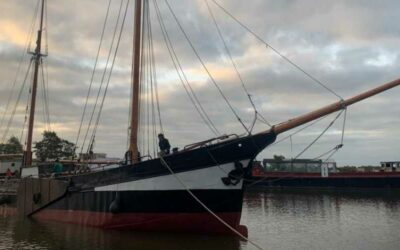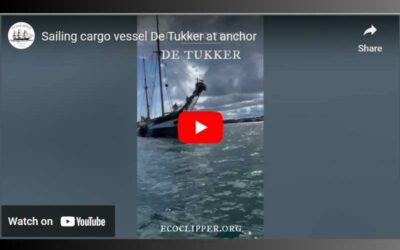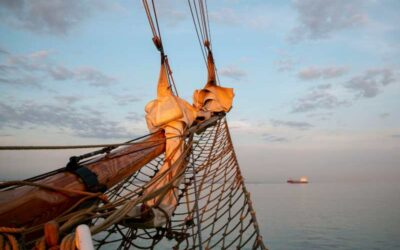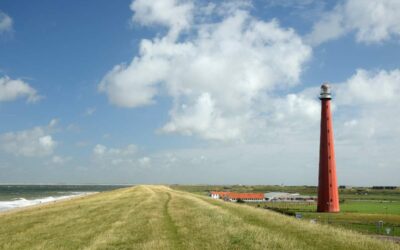Nederlandse text onderaan – Dutch text below
It has been very hard to grasp, for as long as I have been involved in the maritime industry (since early 90s), why developments and transitions have not been moving faster. The technology is there, the projects are there, the people are excited, the wind blows but somehow developments take forever.
Everybody who accepts current climate and general science, and has the slightest idea of sailing can understand: that is the way forward in the shipping industry. The reason it is not happening, on a grand scale yet, is not technical, or economical. but definitely cultural. It has to do with the culture of our society and even more so: the culture in the corporate shipping, ship financing and chartering companies.

All of that said, the conclusion of this is: that to introduce commercial sail at sea again, the culture and stories need to be aligned. “Good luck, telling this in my board room” you will say. And yes, very true. This is the reason to totally start from scratch an entire new maritime and logistics culture. This is actually happening now, very small scale but growing, with companies like: www.Fairtransport.eu , www.Towt.eu , www.newdawntraders.com , www.timbercoast.com , www.blueschoonercompany.com , www.sailcargo.org , www.brigantes.eu, www.sail-freight.org, xistowines.co.uk, raybelcharters.com and quite a few more…
The strategy here is to rebuild the culture, from scratch, with small, very small ships, and people who sail because they see it as a way of life: the right thing to do. An occupation fitting their story. And then I do believe, over time, the sailing ship can offer us a good and sustainable option for future long distance transport and travel. So this is exactly what we are also working on at EcoClipper.
Finally the quote of David Fleming which could be easily adjusted by changing localisation for commercial sail.
“Localisation stands, at best, at the limits of practical possibility, but it has the decisive argument in its favour that there will be no alternative.”
Nederlandse Text – Vracht Zeilen, Waarom NU?
Vracht Zeilen, Waarom NU?
18 juni 2020
Door: Jorne Langelaan
Oprichter en start-up Directeur van EcoClipper. Heeft uitgebreide ervaring in de Maritieme
wereld.
Zolang als ik al in de maritieme wereld bezig ben (sinds begin jaren 90) vind ik het
moeilijk te bevatten waarom ontwikkelingen en veranderingen zo langzaam gaan. De technologie is er, de projecten zijn er, enthousiaste mensen ook, de wind waait, maar op de een of andere manier gaan de ontwikkelingen traag.
Iedereen die de huidige klimatologische en algemeen wetenschappelijke inzichten
onderschrijft en iets weet van zeilen, kan begrijpen dat dit voor de scheepvaart de
gewenste koers is. De reden waarom dit nog niet grootschalig gebeurt is niet van
technische of economische, maar van culturele aard. Het heeft te maken met de cultuur onze samenleving en in het bijzonder de cultuur binnen scheepvaartmaatschappijen, die
van de scheepsfinanciering en die van charterbedrijven.
Dit gezegd hebbend, kan geconcludeerd worden dat de herinvoering van de commerciële zeilvaart een culturele aanpassing vereist. ‘Ga dat maar eens in onze directiekamer vertellen. Succes ermee.’ hoor ik al zeggen. En terecht.
Het is juist daarom van belang om van begin af aan een geheel nieuwe maritieme en logistieke cultuur te ontwikkelen. En dat is precies wat er op dit moment gebeurt,
kleinschalig nog, maar groeiend, met bedrijven als: www.Fairtransport.eu , www.Towt.eu , www.newdawntraders.com , www.timbercoast.com , www.blueschoonercompany.com , www.sailcargo.org , www.brigantes.eu, www.sail-freight.org, xistowines.co.uk,
raybelcharters.com en nog een aantal meer…
De strategie hierbij is een complete cultuuromslag




